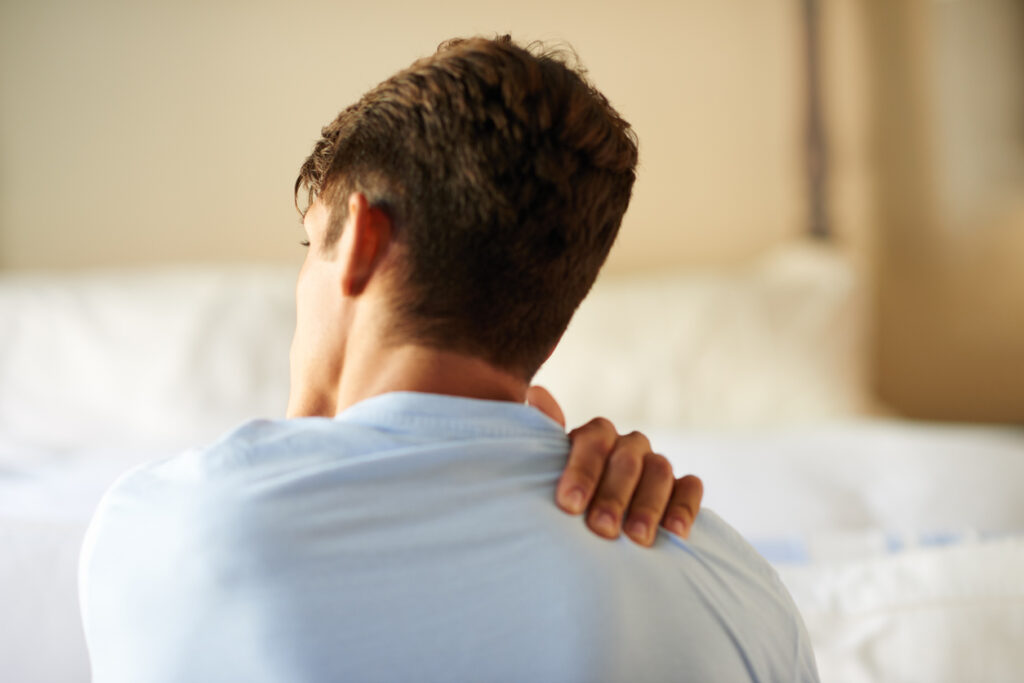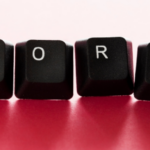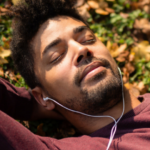Overwhelming worries and spiralling thoughts about the future — most of us know what it’s like to feel anxious sometimes. But this normal emotional response to challenging situations can become a problem when you experience it excessively or it impacts your day-to-day functioning.
When that happens, you might not connect your feelings or behaviours with anxiety.
“In men, usually [anxiety] shows up in most people because we use certain behaviours to manage it or avoid it,” says psychologist Dr Beau Growcott. “It can be anything in an excessive amount to distract them.”
Here are some of the signs of anxiety in men that you might be missing.
1. Drinking alcohol and using drugs
Using alcohol or drugs is a common way to deal with unwelcome emotions like anxiety, but it just masks the underlying issue and can make you feel worse in the long run. A few drinks might initially make you feel more relaxed, but alcohol depletes the neurotransmitters in our brain that naturally reduce anxiety. This leads you to feel more anxious when you stop drinking and need to drink again to numb those feelings. As your tolerance builds, you need an increasing amount of alcohol to experience the same reduction of anxious feelings.
2. Excessive masturbation and porn use
Masturbation is a healthy, normal and common part of human sexuality but doing it excessively can impact your relationships and everyday life. It can also be a problem if you’re using it to escape feelings of anxiety. If porn use is becoming a frequent impulse, you’re missing work, school, or important social events or it’s impacting daily activities, these might be signs that you’re masturbating too much.
3. Procrastination
Whether you’re putting off a big university assignment, delaying an important doctor’s appointment or struggling with indecisiveness — anxiety can make you procrastinate. This might be due to fears of failure, worries about a poor outcome, perfectionism or feeling overwhelmed. Instead of beating yourself up about it, acknowledging your anxiety can help you be a bit more self-compassionate and face the reasons you may be putting something off.
4. Avoidance
Avoidance is one of the most common coping mechanisms for people with anxiety disorders. Steering clear of things that make you feel afraid — like a high ledge or an aggressive dog — is normal, but unnecessary or extreme avoidance due to excessive anxiety is a problem. If you’re avoiding situations, people or environments to prevent unwelcome thoughts, feelings or consequences, it can impact the way you function and your quality of life, and make your anxiety worse in the long run. If you have social anxiety, cancelling a catch up will make you feel instant relief, but it also reinforces the idea that avoiding something makes you less anxious.

Test for anxiety
If you’re wondering if your thoughts, feelings or behaviours are a sign of an anxiety problem, talk to your doctor.
You can also do the Anxiety and Depression Test (K10), which health practitioners use to assess someone’s levels of distress. It’s an evidence-based test that asks 10 questions about how you’ve been feeling over the past four weeks.
You can do the test here.
What should you be doing about your anxiety instead
If you think that some of your behaviours might be covering up an issue with anxiety, there are better ways to manage it.
“Part of it is developing a tolerance for it, being able to recognise a feeling and to be able to sit with it,” Dr Growcott says. “It would be really useful to talk to a mental health professional and work out what the origins of your anxiety are, because it’s probably coming from a place that you’re not aware of yet or you do know what’s causing it, then they need to work on graded exposure or systematic desensitisation.” This involves exposing yourself to the thing that makes you anxious in tolerable increments.
Men tend to be self-reliant when it comes to dealing with anxiety and may be reluctant to seek professional help. This is often due to concerns about confidentiality, perceived stigma, judgement by themselves and peers, and the assumption that it won’t work.
“Men are driven to do things on their own and, actually, the really important thing to do is connect with other people,” Dr Growcott says. “It doesn’t even have to be a mental health professional, it can be just asking a friend or a colleague about how they might cope with something. But the really important thing is for somebody to have their experience kind of reflected or validated by somebody else.”















